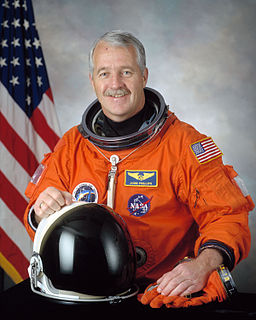A Quote by Neil deGrasse Tyson
The history of exploration has never been driven by exploration. But Columbus himself was a discoverer. So was Magellan. But the people who wrote checks were not. They had other motivations. And there's Columbus - he couldn't even get Italy to pay for his voyage so he has to go to Spain.
Related Quotes
Every schoolchild knows that Columbus set out across the sea to prove that the world was round. But the belief in a spherical earth had a long and illustrious pedigree, as Columbus himself was well aware. . . . "The second reason that inspired the Admiral [Columbus] to launch his enterprise and helped justify his giving the name 'Indies' to the lands which he discovered was the authority of many learned men who said that one could sail westward from the western end of Africa and Spain to the eastern end of India, and that no great sea lay between."
In fourteen hundred ninety-two Columbus sailed the ocean blue and discovered America. Now, some have argued Columbus actually discovered the West Indies, or that Norsemen had discovered America centuries earlier, or that you really can't get credit for discovering a land already populated by indigenous people with a developed civilization. Those people are communists. Columbus discovered America.
We still have to realize that if you are say a historian of the Civil War, you don’t know anything special about say Columbus or for that matter the 20th century. You are a consumer of that information, especially if it’s stuff like Columbus and the American Indians. That information isn’t even in history, much of it. Much of it is in anthropology or archeology.



































